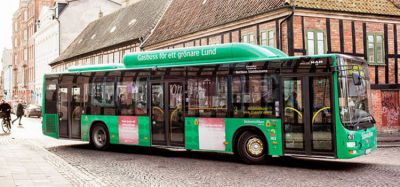MARTA launches on-demand ride-share pilot programme
- Like
- Digg
- Del
- Tumblr
- VKontakte
- Buffer
- Love This
- Odnoklassniki
- Meneame
- Blogger
- Amazon
- Yahoo Mail
- Gmail
- AOL
- Newsvine
- HackerNews
- Evernote
- MySpace
- Mail.ru
- Viadeo
- Line
- Comments
- Yummly
- SMS
- Viber
- Telegram
- Subscribe
- Skype
- Facebook Messenger
- Kakao
- LiveJournal
- Yammer
- Edgar
- Fintel
- Mix
- Instapaper
- Copy Link
Posted: 10 March 2022 | Intelligent Transport | No comments yet
With the launch of MARTA Reach, the Metropolitan Atlanta Rapid Transit Authority intends to observe the effectiveness of on-demand ride-sharing in connecting passengers to fixed-route transit.


The Metropolitan Atlanta Rapid Transit Authority (MARTA), in partnership with Georgia Tech, has announced the launch of MARTA Reach, a six-month pilot ride-share service designed to connect riders to-and-from bus and rail services. MARTA Reach will test how on-demand shuttles can be used to make it easier and faster for customers to get to their destinations using MARTA services and help to minimise waiting and walking.
“This pilot programme combines on-demand ride-share with public transit, providing personal transportation at a low cost, and will be a vital connection to the larger MARTA system for those customers in areas underserved by transit,” said the Metropolitan Atlanta Rapid Transit Authority’s Interim General Manager, Collie Greenwood. “I’m eager to see how it is used, its efficiency and whether the programme could be adopted and expanded to help complement our upcoming bus network redesign.”
MARTA Reach began operation on 1 March 2022, in West Atlanta, Belvedere and the Gillem Logistics Center, and costs the same as a fixed-route fare. The service runs from 06:00 until 19:00, Monday through Friday, and is a ride-sharing service, meaning that other passengers may be picked up and dropped off during a trip.
Commuters can order a ride from the MARTA Reach app on their smartphone, which will guide them to designated pick-up and drop-off stops near the beginning or end of their trip. Riders can request additional stop locations in the app, if their desired stop does not come up. All MARTA Reach vehicles are wheelchair and stroller accessible.
In order to pilot the programme, MARTA and the Georgia Tech Research Cooperation received a $1 million grant in 2021 from the U.S. National Science Foundation.
Related topics
Accessibility, Mobility Services, On-Demand Transport, Passenger Experience, Public Transport
Related modes
Ride-sharing & Car-sharing
Related countries
United States
Related organisations
Georgia Tech Research Cooperation, Metropolitan Atlanta Rapid Transit Authority (MARTA), U.S. National Science Foundation
Related people
Collie Greenwood








